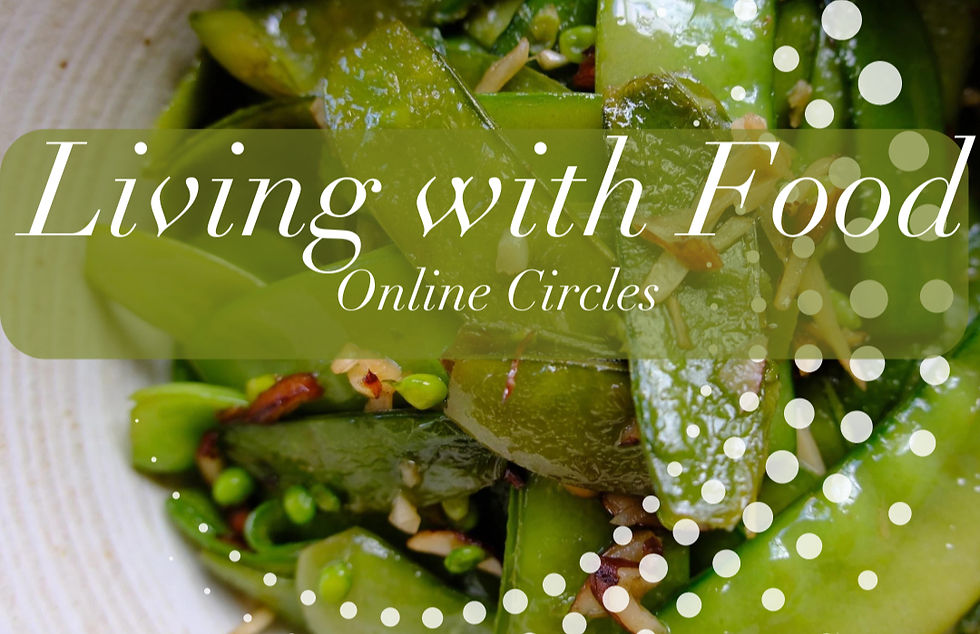There’s a growing sense that humanity is disconnected from the very earth we depend on. We’re not only destroying ecosystems that evolution has taken billions of years to create, but we’re also losing our own power and purpose in the process. In my recent posts, I’ve been reflecting on how this disconnection is demonstrated through our relationship with food. I’ve explored ideas surrounding what we should and shouldn’t eat (the ethics of food), as well as what food is and what that reveals about us (its ontology). What I’m discovering is rather disheartening—the modern relationship with food showcases a low level of awareness and, when viewed from an ecological and embodied perspective, a stunting of our capacity to move forward.
In his class, Jean shared a profound insight: “Cook to be one with the universe.” Ultimately, he doesn’t believe there is such a thing as ‘good’ or ‘bad’ food. Chocolate, for example, isn’t inherently bad for us. What matters is how our body responds to chocolate and whether that response brings us into or out of balance. Jean is aware that this balance can change daily—today, chocolate might make me feel unwell, while tomorrow, it might lift me out of a depressive slump. This is the nature of nature—it’s in constant flux, so it’s not surprising that something can be beneficial only some of the time.

[Jean teaching at the Concord Institute - Photo Credit: Peter Baert]
What does it take, then, to know when eating chocolate will be beneficial? With so many interacting complexities, we’re left with the guidance to “trust that your body will tell you.” But, as discussed in my previous post, this trust doesn’t stop at the boundary of your body—it extends into our entire connection with the ecosystem, and thus, the universe.
So why does our relationship with food reflect a lack of consciousness?
It’s because, in general, we don’t use this kind of trust or awareness when making food choices. We rarely consider or feel our connection to the larger universe. When I worry about plastic-covered celery, for instance, I focus on the idea that “plastic is bad,” without connecting to the broader context. Perhaps, in this situation, the celery—which I’ll mainly use for stock—will still bring me into balance when I eat it, despite the plastic. Or, if plastic is inherently a material of imbalance, maybe I should stop sourcing anything from the supermarket altogether. But then I’m faced with the excuse: “I don’t have time to change my habits; I need this convenience in my life right now.” This brings up another question: How conscious and connected is that type of thinking to the rest of the universe?
The bottom line is that our current relationship with food reveals the massive shift required to align ourselves with the greater ecosystem. I either need to understand my relationship with plastic on a much deeper level or break my shopping habits and find a more appropriate source of celery—and that’s just considering celery. Both options demand energy, thoughtfulness, care, and a significant departure from my current life and habits. But this is what it takes to establish a balanced relationship with the universe. It’s already a significant challenge for an individual—imagine the effort required for a community, a country, or a government to make such a shift.
If Jean were to advocate for an ethics of food, I believe he would start here. What’s ‘right’ is to bring intention to every aspect of cooking. Despite the circumstances, gather the best ingredients you can, consider the soil, the farmers, the transportation, and the seeds. Use high-quality cooking tools, and educate yourself about cooking and nutrition. Most importantly, bring intention and care to the process, remembering that when you cook and eat, you’re also consuming sunlight, rain, and earth.

[AI Generated Image]
The philosophy underpinning our relationship with food is vast, and I look forward to exploring it further in my ‘Philosophy of Food’ circles. But as a philosopher, I can’t conclude with definitive answers. Instead, I’ll leave you with a couple of questions to ponder:
Is it better to eat microwavable meals with full awareness and understanding of how they came to be on your plate and how eating them impacts the larger universe, or to eat a carefully sourced, balanced, and cooked healthy meal on a yoga retreat just because it was served to you at dinner time?
Imagine two chefs in a kitchen, both cooking the same meal with the same ingredients. One is fully present and attentive to the process, while the other is distracted by a TV show. Will their dishes taste the same or different?
Links:
Jean Torne https://www.wholefoodkitchen.co.uk/
The Concord Institute: https://integralstudies.concordinstitute.com/
Peter Beart (photography): peterbaert.com
Wye Philosophy's Event:

Annie's Online Circles about the Philosophy of Food starts in September.

Comentarios